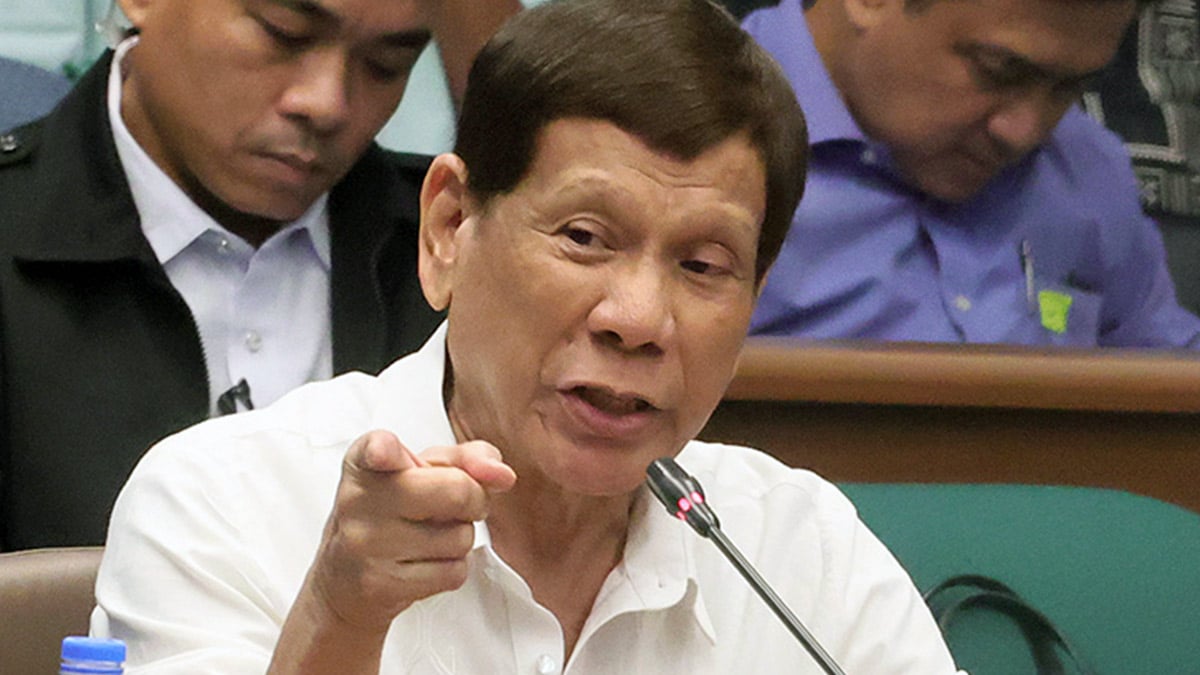DOJ now probing Duterte’s possible violation of int’l law
MANILA, Philippines — A special body formed by the Department of Justice (DOJ) is investigating former President Rodrigo Duterte for potential violations of international humanitarian law in connection with the extrajudicial killings (EJKs) that occurred in the course of his controversial drug war.
“Yes, our task force is doing that. I was just talking to the head of the task force earlier,” Justice Secretary Jesus Crispin Remulla told reporters on Monday when asked if the DOJ was investigating the pronouncements of the former President during the recent congressional hearings, particularly the House quad committee’s inquiry on Nov. 13.
Remulla was referring to the task force formed earlier this month to investigate, build cases, and file charges, if warranted, against perpetrators and others involved in the thousands of EJKs during the drug war waged by Duterte.
READ: Remembering EJK victims
According to police data, more than 6,000 people were killed between 2016 and 2022, the previous administration’s term, although human rights groups estimate the number could be as high as 30,000.
‘Separate charges’
Remulla on Monday said the task force was focusing on Duterte’s potential violation of international humanitarian law (IHL), the same legal grounds of the International Criminal Court (ICC) in its own probe of the drug war.
The IHL was incorporated into the country’s legal system in 2009 through Republic Act No. 9851, or the Act on Crimes Against International Humanitarian Law, Genocide, and Other Crimes Against Humanity.
The investigation, Remulla said, also looks into possible violation of several domestic laws like the Revised Penal Code and other special laws, in addition to RA 9851.
Duterte has testified in separate hearings by the House of Representatives last week and the Senate two weeks earlier.
He claimed before the House quad committee that he had killed at least six “criminals” during his time as mayor of Davao City.
Asked if the DOJ would investigate Duterte’s alleged actions as Davao mayor, Remulla said his agency’s probe might overlap with that of the ICC.
Formal investigation
He said he wanted the charges filed with the ICC and those filed before Philippine courts to be different.
“We want the charges to be separate from each other. What we charge here and what the ICC charges have to be, if possible, will not overlap. Because even if we are not members of the ICC, the spirit of complementarity still applies,” he said.
In September 2021, the ICC formally launched its investigation into Duterte’s drug war after the court’s Pre-Trial Chamber found “reasonable basis” to continue with its probe.
According to the Hague-based tribunal, the specific legal element of “the crime against humanity of murder” under Article 7(1)(a) of the Rome Statute of 2002, which established the ICC, has been met with respect to the killings committed throughout the Philippines between July 2016 and March 2019, and to the killings in Davao City between November 2011 and June 2016, one of several fixed terms when Duterte occupied the mayoralty since the late 1980s.
Despite the government’s own investigation of the alleged drug war-related EJKs, President Marcos dispelled the notion that his administration was conceding to the ICC’s jurisdiction following Duterte’s dare to the international tribunal to prosecute him.
“We will not help, but if [Duterte] agrees to entertain the ICC or to be investigated, that is entirely up to him; that is no longer for us to decide,” Marcos said.
